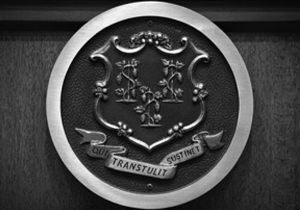State Tax Panel Hears Presentations on CT’s Competitiveness, Fiscal Health
Members of the State Tax Panel today heard from two different academics about how the state measures up regionally and nationally in terms of its tax structure and the role of other fiscal variable in economic growth (see accompanying handouts).
Some interesting takeaways from the presentations:
- Numbers and studies and empirical data all have caveats and those using the data should be careful of assumptions behind them.
- Regional data is more relevant to CT.
- CT has an unbalanced tax system; broadening the tax base and lowering rates would help foster a neutral tax system. (Note: This theme has come up repeatedly in Tax Panel meetings and presentations.)
- Progressivity should happen on expenditure side too. Taxes and expenditures are part of a fiscal system.
- CT is heavily reliant on property taxes (3rd nationally) and individual income taxes (2nd). New York ranked 4th and 1st, respectively for these two taxes, and Massachusetts ranked 9th and 4th, based on 2012 Census data.
- Fiscal reform by itself would not have a dramatic effect on a lagging economy, but doing nothing to reform CT’s high property tax and individual income taxes would hinder growth.
- CT should adopt policies to foster and leverage its high-productivity, high-earnings, knowledge-based industries (e.g. better air, rail services), as well as its natural beauty and relatively low housing costs. (Department of Revenue Services (DRS) Commissioner Kevin Sullivan noted that the state has formed industry clusters and repurposed outstanding tax credits (UTC, Jackson Labs) to help leverage its assets).
- CT maintains – largely to its detriment – a deep–seated home-rule mentality, despite the fact that it is a small state (an observation made by DRS Commissioner Sullivan and others on the Panel).
- CT is made up of many component economies, which makes agglomeration or face-to-face interactions between people in industries (e.g. the Google model) difficult.
- One of the dilemmas is that CT is an exurban political economy; the whole is greater than the sum of its parts. People who are paying for the vast majority of the economic growth in CT want the state to treat its economy as one, not multiple, fragmented areas.
- State Sen. Scott Frantz, R-Greenwich, a member of the Panel, noted that CT has a high-cost of living and in the past four years has experienced two historic tax increases, factors he said have to be considered when conducting economic analyses.
The next meeting of the State Tax Panel will be on October 13th at the Legislative Office Building in Hartford at 10 a.m. Important: The topics will be General Business taxation (corporate net income), alternatives approaches to General Business taxation, and the future of the state’s fiscal architecture. The Panel is expected to complete a draft report encompassing its recommendations by mid-December.
If Unprepared with New Terminals Oct. 1
Retailers Face Liability for Credit Card Fraud
Retail merchants beware: Starting tomorrow, merchants that have not upgraded their credit card terminals to read new chip-based (versus magnetic swipe) cards will be liable for certain fraudulent credit- and debit-card transactions, according to an article in today’s Wall Street Journal. Up until now, the liability for such fraud has fallen on the financial institutions issuing the cards.
FYI: New Laws Take Effect on October 1
Many Public Acts, or sections of Public Acts, adopted by the Legislature during the regular 2015 session and the June 2015 Special Session take effect tomorrow –October 1, 2015. Click on this link – 2015 Public Acts – to view the list.


